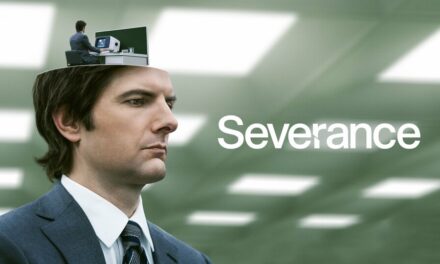Who would have thought that the company behind the cuddly Great British Bake Off format would be embroiled in one of the biggest documentary ethics blow-ups of recent years? Love Productions is indeed behind both Bake Off and Benefits Street, a five-part Channel 4 series that has “prompted a storm of protest” and a 38 Degrees online petition signed by 50,000 people. Helpful tweets around the show include Joey Barton (a footballer) saying it offers “strong evidence for licence to breed”. Benefits Street stands accused of ‘poverty porn’, and a public meeting of 100 people from James Turner Street in Birmingham (the programme makes no attempt an anonymity) have said that they have been ‘misrepresented’. They have been offered a live hour-long debate after the final show airs on 10 February, to be made not by Love Productions but the Question Time producer Mentorn. Channel 4 is cheerful in the face of adversity as the audience for episode 2 was 5.1 million, its best figure for more than a year. But what of the filmers and their hapless subjects?

Benefits are a current subject of political controversy. PM David Cameron has waded in to say that it “is a reminder that some people need help getting out of the benefits system”. Love Productions has a long tradition of making programmes that try to express current affairs issues in accessible formats: Tower Block of Commons, Make Bradford British, Young Autistic and Stagestruck, Young Mum’s Mansion… It is always a fine line to tread, as the conceptions of the format can sometimes overwhelm the social analysis on offer. Switching between Benefits Street on Channel 4 and Celebrity Big Brotheron Five vividly illustrates this: it is sometimes hard to tell the difference. In each series, a bunch of people are thrown together in confined circumstances and challenged to make the best of whatever life throws at them. We watch to see what mistakes they make, and how their peculiar circumstances affect their interpersonal relationships. We overhear the rows and shed a tear at the moments of real human sympathy and unexpected revelations of suffering. Jim Davidson tells Linda Nolan to shut her fat face, and the “characters” (as the producers call them) in Benefits Street do the same. Where are the differences?

From the viewers’ point of view, there are very few. We probably know Davidson and Nolan, but definitely do not White Dee, Black Dee, Danny or Fungi. From their point of view, however, the differences are massive. Celebrity Big Brother deals with celebrities. They are paid a substantial fee to appear. They have agents and other advisors who help them weigh up the career advantages of “going into the house” at this point rather than do pantomime (the fees are similar after all). Liz Jones, the doyenne of subjective journalists, repeatedly says that they have been after her to appear for several years. Inside the house, the Big Brother characters are isolated from the personal comments that slosh around wholesale on Twitter and are filtered into the news media.

Not only are the residents of Benefits Street totally unprepared for celebrity, they are also confronted with the full force of public vituperation as the series unfolds. No wonder Love Production’s co-founder Richard MacKerrow pleads that “If I had [to point to] one particular weakness of what we do, I think there isn’t enough funded aftercare for people who have been brave enough to be on television, whether [the funding is] from broadcasters or the government.” That’s easy to say, harder to organise and expensive to fund, of course (but would it cost more than Big Brother-style personality fees?).
But probe a little deeper. On Radio 4’s Today programme on 16 January, the creative director of Love, Keiran Smith, defended the ways in which the participants were recruited by the filmers. He was evasive about whether they were told that the series would concentrate on benefits, and stressed that the series dealt with other themes, and emphasised solidarity in the face of hardship. But, to pick up on MacKerrow’s point, were they prepared for what might happen when they appeared on TV? After all, some of the characters have difficulty in thinking through the consequences of their actions even within the space of their own lives. So how are they to think through the consequences of their own media exposure, even if they are avid consumers of the TV that does this to others? Some of the characters are excluded from the social currents and the digital revolution that has enabled the widespread public scepticism about the making of documentaries discussed in my Documentary: Witness and Self-Revelation.
MacKerrow and Smith have a problem: if they told their potential participants what might happen to them, then the more interesting subjects would probably no longer be up for it. The filmers would be left with the exhibitionists, those who have problems with the status of truth, those with nothing left to lose. Such characters do appear in the series (especially in episode 1), but the filmers claim that they try to show attempts to get out of the benefits trap.
The problem is that the characters have to bear the weight of the current social debate about benefits, and are unprepared for that. The debate takes the form of a bitter ongoing rhetorical battle between left and right, and a government intent on reducing overall spending on benefits no matter who it affects. Benefits Street pitches right into the middle of this. This is different from making programmes that bring an issue to public attention, as many of Love’s previous productions have tended to do. MacKerrow pleads that “I started off in the days when you could do serious programmes and they were in peak time. Now you have to find different, innovative ways of making sure that serious issues stay in peak. I often get, ‘you have made it noisy because you are trying to bring in an audience, you tried to entertain’. I say, ‘if you are looking at me to apologise for trying to entertain you, you are talking to the wrong guy’”. This is true for the social experiment formats of Boys and Girls Alone or Home Is Where the Heart Is. But Benefits Street hits a different moment: it pushes at an open door. The participants fall headlong through that door into a blizzard of hostile tweets and press attention. It is no different from the Wilkins family in the 1983 BBC series The Family… except that we should have learned a little about enforced celebrity in the intervening years.
MacKerrow’s argument has another implication: the weight of the format. This is where we all have to trust the filmers to get it right, to walk the fine line between statement of fact and appeal to narrative satisfaction. In this area, public scepticism is most acute. Two things at least should alert the sceptical viewer. Within the programme itself, it is clear that extensive shooting has been soldered together to create a vivid narrative. Episode 3 features the young parents Mark and Becky struggling with parenthood. Mark’s haircut changes alarmingly within sequences, sometimes shaven headed, sometimes with a couple of week’s growth. And beyond the programme, it has emerged that a couple who were extensively filmed were eventually dropped from the series. The reason given by Smith on the Today programme was that one of them was a benefits inspector. It begins to feel as though the series has been fitted to format, designed in post-production to create the maximum public attention.

With hindsight, perhaps the filmers would have weighted the episodes differently. For the consequences of the media blizzard are that the participants are fighting back. Aided by the experienced campaigner Rev Steve Chalke, they have got a right to reply programme. However, this is in the trickiest of all formats, the live studio debate. Will the theme be benefits, or the ethics of documentary filming? More likely, it will be a mishmash of the two, and no-one will be satisfied. The community spirit in James Turner Street, Winson Green, Birmingham 18 will be severely damaged by what one person says (or does not say) about another. This is the very ‘community spirit’ that the filmers set out to convey, according to them.
Will Love Productions or Channel 4 help repair things? Will they offer better support than is generally available to help their temporary celebrities to get to a ‘better place’ in their lives? Well, it would be nice to think so, but, just like the whole benefits thing, it comes down to who is willing to pay for positive social action and to think through the enabling of self-help in the community. Positive action has been built into of some of Love’s previous formats (mainly with the BBC), as it is with Channel 4 series like The Secret Millionaire but it is clearly not part of this package here for some reason.
Meanwhile on Five, the Celebrity Big Brother participants will each be taking home anything between £30,000 and £100,000.
The whole experience underlines the basic question that people appearing in a factual format must ask: “what’s in it for us?”
JOHN ELLIS is Professor of Media Arts at Royal Holloway University of London. He is the author of Documentary: Witness and Self-revelation (Routledge 2011), TV FAQ (IB Tauris 2007), Seeing Things (IB Tauris 2000) and Visible Fictions (1984). Between 1982 and 1999 he was an independent producer of TV documentaries through Large Door Productions, working for Channel 4 and BBC. He is chair of the British Universities Film & Video Council and leads the Royal Holloway team working on EUscreen. His publications can be found HERE.





